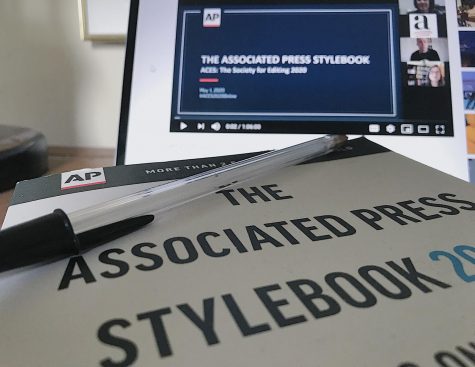Oliver’s Twist on Comedic Journalism

British Comedian John Oliver started by subbing for John Stewart. Courtesy of AP Images
December 3, 2014

By Laura Sanicola
It has been weeks since British comedian John Oliver has graced audiences with his hilarity on HBO, sign- ing off from a successful first season of his new show by shooting salmon from cannons onto the sets of various television programs. Although season two of “Last Week Tonight With John Oliver” will not air until February, I find myself among the millions streaming his old segments on YouTube, applauding what I consider to be a milestone in late night political satire television. Armed with a charmingly crooked smile, clever quips and a wealth of statistics and research, Oliver called our attention to bit pieces of news using a unique mix of investigative journalism and stand up comedy in a new and refreshing way.
When I first learned of the premise of “Last Week Tonight,” I had to ask myself: Does the world need another comedy show poking fun at right wing antics and government stupidity? Surely Jon Stewart and Stephen Colbert and the cast of “SNL” spend an adequate amount of my week debunking political backtalk and calling out public figures using the post-modern irony that makes for the satire that makes us feel super smart and politically aware. Yet, Oliver’s methodology is somewhat different than that of his counterparts and arguably more effective at informing audiences with evidence coupled with humor.
He has tackled the ineffectiveness of state legislatures and our inability to discern what even goes on in our state capitols. He has briefed us on the way the lottery system exploits those already living below the poverty line with the guise of helping fund education. He has relayed the false marketing behind beauty pageant programs that claim to offer millions of dollars in schol- arships. He has us seething that the process of creating visas for translators who have endangered their lives and families to help American causes creates only a handful of annual visas. He has done all this humorously and passionately with a patriotic fervor that initially catches one by surprise when hearing arguments articulated in a thick British accent.
Oliver’s success at reaching the public in a matter of months has been the most impressive effect of Oliver’s relatively new campaign. He not only has been able to introduce relatively ‘dull’ topics such as the war on net neutrality, in a smart, engaging manner, but after advocating that people take advantage of the Federal Communication Commission’s ini- tial open commenting period to ex- press their desire for a free internet, the government server crashed. This caused the FCC to tweet heavy traffic as the cause of their technical difficulties.
As a journalist and a longtime Comedy Central fan myself, I appreciate the breadth of research Oliver uses to promote a public awareness of relevant, if not hot, topics in a comprehensive way. Yes, one of his most popular YouTube clips argues that pumpkin spice lattes taste like how candles taste, not how they smell. Yes, his absurdities include spoofing “Sesame Street” to raise awareness for prison culture today. Despite the obvious comedic effect intended by his show, each 15 minute argument leaves me feeling more educated than when I walk out of several of my college classes — another op-ed for another time. “Last Week Tonight” does not yet have an exclusively leftist stigma attached to it, which has allowed moderate ideologues such as myself to tune in not because we feel our liberalism requires us to agree with him, but because we are genuinely interested in what he has to say.
There is also something remarkable about his segments that I have coined “the Oliver effect” (and I am aware that this will not catch on). After watching him unfold an issue from a logical starting point and highlight the way in which FIFA has morally derailed or how public opinion on the police force in Ferguson has been misrepresented, by the segment’s end, I feel like viewers and I have collectively progressed in our understanding and can proceed to make some sort of change in our mentality, if not an active change, in the political system. It is going to take a lot more than a comedian weaving current effects and funny gimmicks in a half hour segment on HBO for any sort of political change to occur; the power to create change lies solely within the capacity of the viewer. But, in an age where it takes journalism affronted by puppets and salmon cannons to attract viewers long enough to think about real, hard-pressing issues that affect U.S. society today, then by all means, let there be puppets. Let there be salmon cannons. Let there be John Oliver.
Laura Sanicola is the Assistant News Editor for The Fordham Ram.









If you want a picture to show with your comment, go get a gravatar.